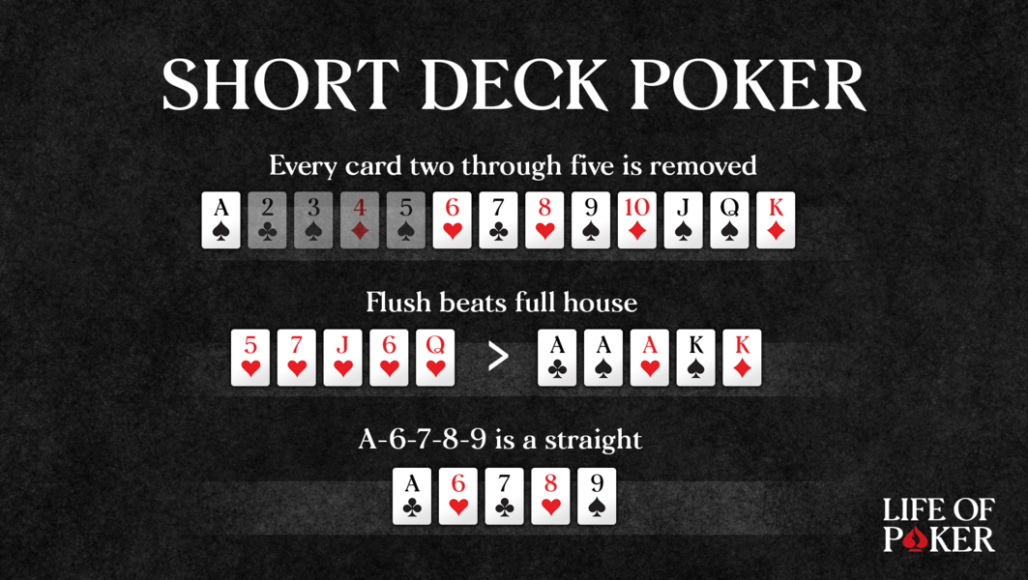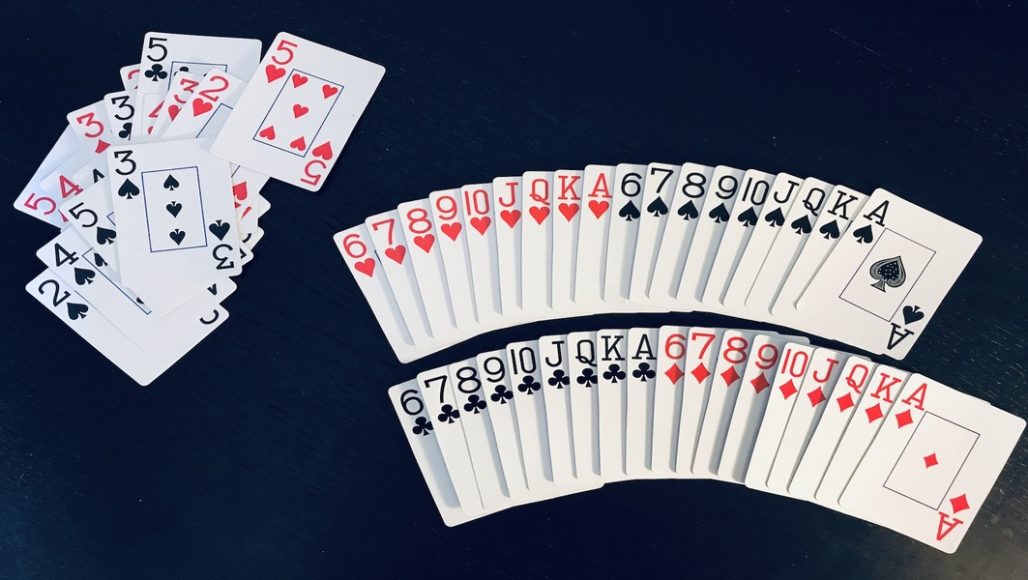What is Short Deck Poker: A Beginner’s Guide

Short Deck Poker, also known as Six-Plus Hold’em, is a dynamic variant of traditional Texas Hold’em that has notably captured the interest of the poker community. This variation is played with a reduced deck, which alters the traditional hand rankings and strategies, providing a fresh twist on the classic game. It appeals to a broad range of players, from seasoned veterans to newcomers. In this review, we delve into the essentials of Short Deck Poker, covering its rules, strategies, and the unique aspects that differentiate it from standard poker games, video poker, and even live dealer games.
What is Short Deck Poker?
Short Deck Poker simplifies the traditional 52-card deck to just 36 cards by removing all deuces through fives. This reduction significantly changes the game dynamics, making higher hands more common and shifting the standard poker strategies. Originating in Asia, Short Deck Poker has quickly spread across the globe, featured in high-stakes tournaments and online poker rooms.
Impact of Short Deck Poker on the Poker Scene
Short Deck Poker has made a significant impact on the international poker scene, particularly in high-stakes environments. It was first popularized by prominent poker tournaments in Asia and has since been a staple in major series, including the Triton Poker Series, which regularly features Short Deck events.
This variant’s introduction to high-profile tournaments has not only expanded its popularity but also highlighted its potential for large, unpredictable pots and exciting gameplay. This has attracted both high rollers and professional poker players looking to test their skills in a different format.
Short Deck Poker Rules

The primary short deck poker rules mirror those of Texas Hold’em, with a few key adjustments to accommodate the smaller deck. Players are dealt two private cards and aim to make the best five-card hand using any combination of their private cards and five community cards. The betting rounds—preflop, flop, turn, and river—are maintained.
However, the removal of lower cards alters the probability of hitting certain hands. As such, a flush now ranks higher than a full house due to its reduced likelihood. Understanding these adjusted short deck poker hand rankings is crucial for success in Short Deck Poker.
Short Deck Poker Hand Rankings
The modified short deck poker hand rankings are pivotal to formulating a robust short deck poker strategy. Here’s a quick rundown of how hands compare:
- Royal Flush: Ten, Jack, Queen, King, Ace of the same suit.
- Straight Flush: Five sequential cards of the same suit.
- Four of a Kind: Four cards of the same rank.
- Flush: Five cards of the same suit.
- Full House: Three of a kind plus a pair.
- Straight: Five sequential cards (Ace can play high or low).
- Three of a Kind: Three cards of the same rank.
- Two Pair: Two different pairs.
- Pair: Two cards of the same rank.
- High Card: The highest card in your hand.
Short Deck Poker Strategy
Adapting to Short Deck Poker requires strategic adjustments to account for the increased frequency of high-value hands. Here are several key strategies to consider:
- Aggressiveness: The likelihood of drawing strong hands is higher, so players generally adopt a more aggressive playing style.
- Positional Play: Like traditional poker, position is vital. Acting last provides a strategic advantage, allowing more informed betting decisions.
- Hand Value: Adjust your understanding of hand values. For instance, a flush holds more weight than a full house.
- Bankroll Management: Given the game’s inherent variance, maintaining a sound bankroll short deck poker strategy is essential to withstand the swings.
The Future of Short Deck Poker

As Short Deck Poker continues to grow in popularity, its future looks promising. More online poker platforms are beginning to offer Short Deck variants, making it accessible to a wider audience. Additionally, as players seek new challenges and ways to enjoy the game, Short Deck’s distinct strategic and probabilistic elements make it an appealing option. The game’s evolving strategy and its impact on both cash and tournament play suggest that Short Deck Poker will remain a vital part of the poker world for years to come.
By exploring these facets of Short Deck Poker, players can gain a deeper appreciation for its complexity and allure and understand what is short deck poker. Whether you’re aiming to become a serious player or simply looking to enjoy an exciting variation of poker, Short Deck offers a refreshing change of pace with its unique twists on classic poker gameplay.
Conclusion
Short Deck Poker is a thrilling variant that spices up the traditional poker experience by introducing an element of unpredictability and strategy adjustment. Whether you’re a seasoned poker player looking to diversify your game or a newcomer eager to try something different, mastering the short deck poker rules, strategies of Short Deck Poker, and understanding what is short deck poker can offer a rewarding challenge. Embrace the fast-paced nature of this game and the strategic depth it entails, and you may find yourself well-rewarded at the table. Unlike slot machines, which rely purely on luck, Short Deck Poker requires a blend of skill and strategy, making each play session unique and engaging.
By understanding the nuances of Short Deck Poker, players can enhance their overall poker skills and enjoy a fresh take on a beloved classic. Dive into the game today and experience the excitement of Short Deck Poker firsthand!
FAQ
In Short Deck Poker, a flush ranks higher than a full house due to the rarity caused by the smaller deck. Other rankings are similar to traditional poker but adjusted for the reduced number of cards.
Yes, it is suitable for beginners, though it may require a bit of adaptation from traditional Texas Hold’em due to the differences in hand frequency and strategy.
Short Deck Poker is available at various online poker sites and in several physical casinos around the world, particularly those hosting high-stakes poker tournaments.
Key strategies include playing more aggressively due to the increased probability of strong hands, understanding the importance of position, and re-evaluating hand values (e.g., treating flushes with greater importance).
Yes, Short Deck Poker is frequently featured in poker tournaments, especially in high-stakes formats, offering a thrilling variation for competitive players.
In Short Deck Poker, the reduced deck size increases the likelihood of hitting higher hands, which shifts the strategy towards more aggressive play. Players must be more willing to bet and raise with hands that would be considered marginal in traditional Texas Hold’em due to the increased odds of connecting with the board.
The best starting hands in Short Deck Poker are similar to those in traditional Texas Hold’em but with increased strength due to the smaller deck. Premium hands include high pairs like Aces, Kings, and Queens, as well as high suited connectors such as Ace-King suited and Queen-Jack suited.
With fewer cards in the deck, the removal of each card has a more pronounced effect on the odds of making certain hands. For instance, the odds of hitting a flush or a straight are altered, making flushes rarer and straights slightly more common. This affects both pot odds and hand odds, requiring players to adjust their calculations and betting strategies accordingly.